Book List for Winter Vacation by FISF, For Self-improvement, Add to Your Favorites!
发布时间:2021-02-05
At this moment,
Freed from heavy schoolwork
And with the galloping pace of
life
Seemingly slowing down,
The pleasant winter vacation has quietly come.

At this moment,
Bathed in the warm afternoon sunshine
With a cup of scented tea,
A long-awaited book softly opened up
This is just what vacations
should be like.
At
the very beginning of the winter vacation, FISF
professors have prepared a
special gift — a carefully
selected book list, for all the students!
The details are as follows~
Recommended
by FISF FMBA Professors
A
Special Book List of FISF
1
The Power of China’s Financial System
Written by: Jun Qian
Published by: Orient Publishing Center
Content Introduction: The Power of China’s Financial System gives a panoramic description of the magnificent picture of China’s financial
system and makes a detailed analysis on its unique features.
Recommended by:
Jun Qian: Executive
Dean of FISF, Professor of Finance, Doctoral Supervisor
Lei Zhu: Associate Professor of Accounting at FISF (with
tenure)
Reasons for
Recommendation:
By systematically presenting the
development map of the capital market, the book gives a panoramic description of the magnificent
picture of China’s financial system and makes a detailed analysis on its unique
features. Additionally, it conducts a horizontal comparison between the financial
systems in China and other major developed and emerging markets, thus further
explores the significance of the financial system in supporting economic growth
as well as social development.
To know more about the reform
history and opportunities of China’s capital market, we sincerely recommend you
open up The Power of China’s Financial System, to judge, to analyze, and
to achieve solutions. With these solutions, we hope that she can bloom into a
more gorgeous presence in the future.
2
Dataclysm:Who We Are
(When We
Think No One's Looking)
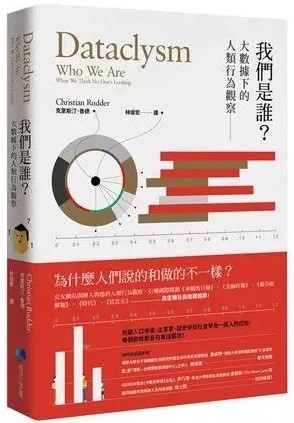
Written
by: Christian Rudder
Published by: Marco Polo Culture
Content Introduction: The author of the book is the initiator of OkCupid, an
American dating website. The book mainly talks about human relations on
the basis of big data. The cited data comes from this dating website.

Recommended by:
Charles Zhang: Deputy Dean of Academics at FISF, Professor of Finance,
Director of Fintech Research Center, Visiting Professor of the Chinese
University of Hong Kong
Reasons for
Recommendation:
Any early look at big data and what it can really do. It
uses a really accessible method of discussion while still capturing the core
principles as to the whys and hows. It encourages us to search
for who we really are as individuals and a society (beyond our perceptions or
image) through the lens of data and was one of the first big-data-driven
accounts. It shifts the focus from story-telling to reading numbers—using
aggregates to describe potentially very idiosyncratic behavior—consequently
also looking deeply at how to read data, graphs, and tables. It really brings
these cryptic tools to reality and makes it all very accessible.
3
A College and A Master
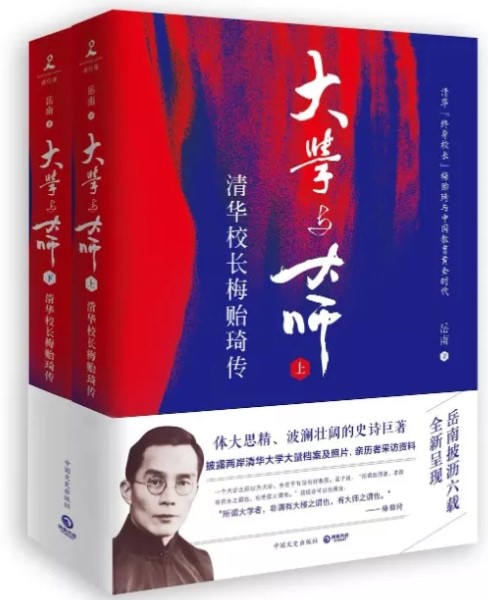
Written by: Nan Yue
Published by: China Culture and History Press
Subtitle: Biography of Yiqi
Mei, President of Tsinghua University
Content Introduction: The vivid biography of the extraordinary educator, Yiqi
Mei. This work includes his personal growth, overseas study and painful
struggle in his devotion to education during turbulent times. He put forward
and stuck all his life to “the master theory” and some other educational
ideology and school-directing concepts. With his faithful and selfless personal
quality, he laid a solid foundation for Tsinghua University to become what it
is now, exerting huge influence on students from generation to generation.
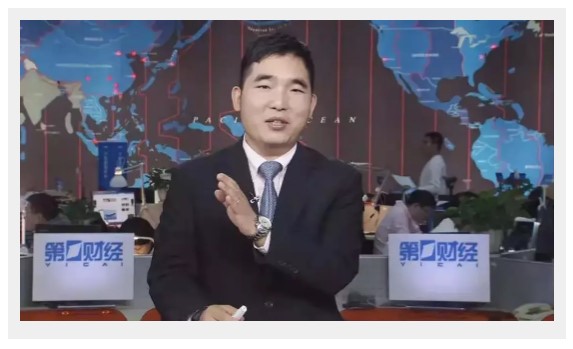
Recommended by:
Huasheng Gao: Deputy Dean of FISF, Professor of Finance, Doctoral
Supervisor
Reasons for
Recommendation:
There isn’t much about Yiqi Mei’s
personal life while in Mainland China, as he moved to Taiwan, China in 1949. I
personally read the book before, which systematically introduces Mr. Mei’s
great contributions to education and his specific concepts. It’s a pretty good
read.
4
How to Win Friends & Influence People
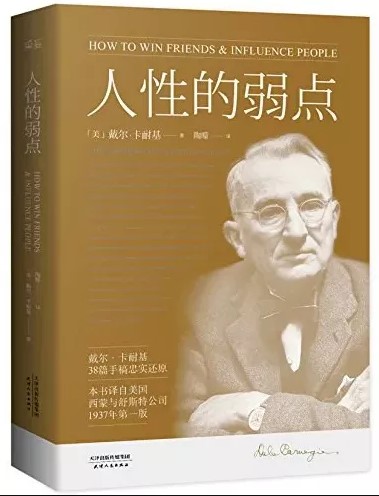
Written by: Dale Carnegie
Published by: Tianjin Peoples Publishing House
Content Introduction: Since its initial publication eighty years
ago, How to Win Friends & Influence People has sold over fifteen million
copies worldwide. In his book, Carnegie explains that success comes from the
ability to communicate effectively with others. He provides relatable analogies
and examples, and teaches you skills to make people want to be in your company,
see things your way, and feel wonderful about it. For more than eighty years
his advice has helped thousands of successful people in their business and
personal lives.

Recommended by:
Huafeng Chen: Professor of Finance at FISF, Doctoral Supervisor,
Academic Director of MBA Program.
Reasons for
Recommendation:
A classic work that maintains a high reference value of its own in present society.
Worth reading and returning to again and again.
5
The Great Divergence and
Modernization of China’s Economic History
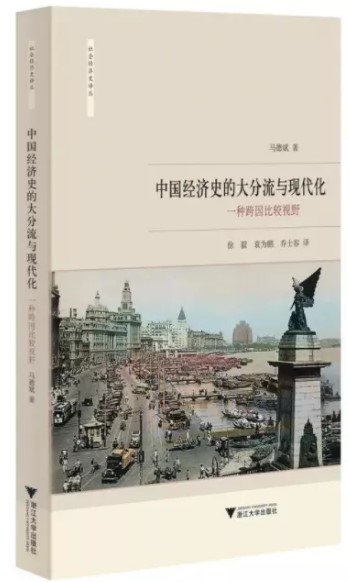
Written by: Debin Ma
Published by: Zhejiang University Press
Content Introduction: The book reflects on the combination of the great
divergence problem in the 18th century and even earlier, issues with
modernization since the mid-19th century. It has a comparative
vision among China, Europe and Japan, and introduces theories or methods of
modern economics.
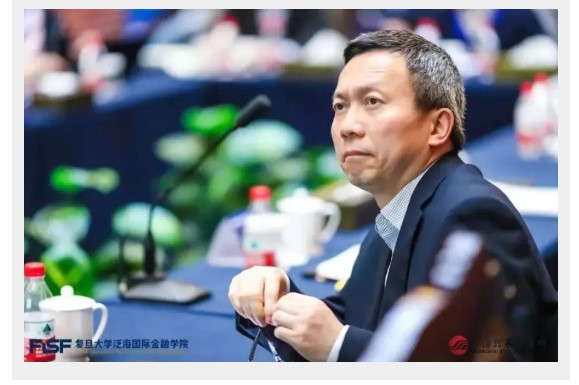
Recommended by:
Donghui Shi: Professor of Finance at FISF
Reasons for
Recommendation:
The compared fields include wages, commodity prices
and the living standards after the removal of price differences. The book
explores the eve of “the great divergence” from three aspects of energy, labor
cost and technology, and returns to “the system of prefectures and counties”
during the Qin Dynasty to have a dialogue with ideologists in past times.
Additionally, it also makes a comparison between the different economic
modernization paths of China and Japan after “the great divergence”. By doing
research with the features of both the econometric history and new-system
economics and by exercising restraints and speculations, the book reveals to
readers the tremendous tension between promoting and restraining economic
growth.
6
Trade Wars are class wars
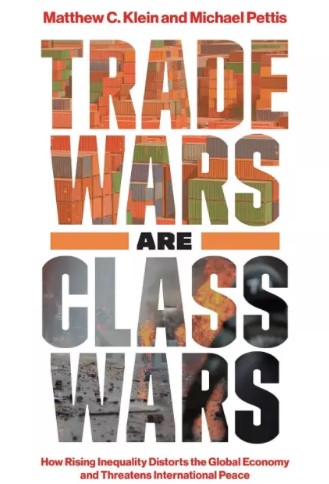
Written by: Matthew C. Klein / Michael
Pettis
Published by: Yale University Press
Content Introduction: Klein and Pettis trace the origins of
today’s trade wars to decisions made by politicians and business leaders in
China, Europe, and the United States over the past thirty years. In this
thought‑provoking challenge to mainstream views, the authors provide a cohesive
narrative that shows how the class wars of rising inequality are a threat to
the global economy and international peace—and what we can do about it.
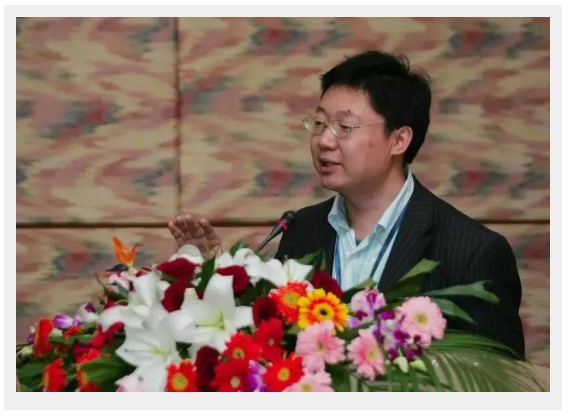
Recommended by:
Yongqin Wang: Professor of
Economics at Fudan University, Doctoral Supervisor, Fulbright Senior Visiting
Scholar at Harvard University (2016-2017)
Reasons for
Recommendation:
The book holds the view that trade wars are the extension of
domestic class conflicts. Through comparison of trades and capital in China,
America and Germany, it mainly discusses the relationship among the financial
system, income gap and trade wars. As stated in the book, “for decades the
actual borrowing cost has always been lower than long-term predictions of
actual economic growth rate, remaining at about 0.” “By 2018, China’s household
consumption has not reached 40% of its output, far less than other economies.”
Students may test and verify the ideas in the book with the concepts acquired
from daily study so as to better understand the relations between finance and
real economy, economy and politics, thus gaining a comprehensive awareness of
the global situations.
May every one of you enjoy a great winter vacation!
See you next term!
Lifelong Learning and Peer
Learning.
As the first club initiated and organized by FMBA students at FISF, FISF
Elite Wisdom Reading Club wishes to absorb external intelligence and export
internal thoughts so as to better help students learn and grow.